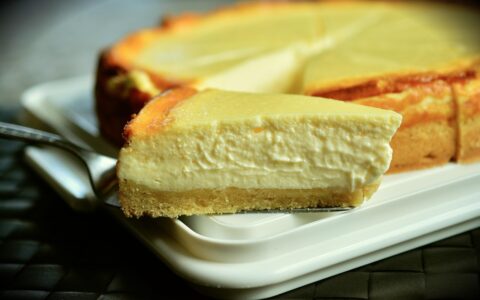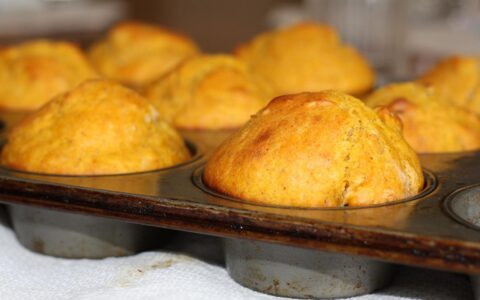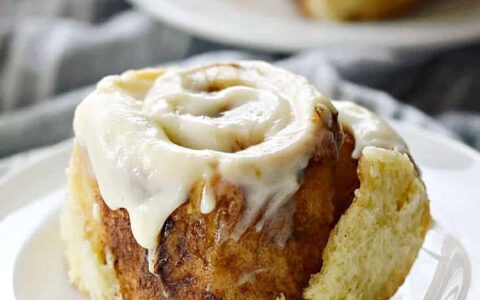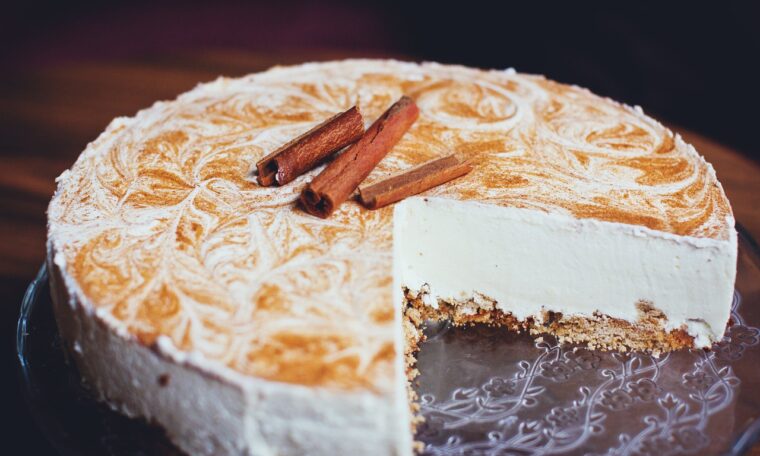
Win Your Next Pageant
Thank you for reading this post, don't forget to subscribe!Get Pageant Questions Written By A Miss Universe Judge

The Timeless Allure of A Classic New York Cheesecake: A Slice of Culinary History
Few desserts command the universal admiration of cheesecake. With its velvety texture, rich flavor, and endless variations, this iconic treat has graced tables from ancient Greece to modern-day Manhattan. More than just a dessert, cheesecake represents a fascinating intersection of culinary tradition, scientific precision, and cultural adaptation that has evolved over millennia.
Ancient Origins: The Birth of a Classic
The story of cheesecake begins not in New York diners, but in the kitchens of ancient Greece. Archaeological evidence suggests:
- 776 BCE: The first recorded cheesecakes were served to athletes at the Olympic Games
- 5th Century BCE: Greek physician Aegimus wrote an entire book on cheesecake art
- Roman Era: Cato the Elder documented recipes using ricotta-like cheese, honey, and wheat
These early versions bore little resemblance to today’s creamy creations. Made with pounded cheese, flour, and honey, they were more akin to dense cakes or energy bars. Yet their popularity spread across Europe with Roman conquests, laying the foundation for countless regional variations.
The Science of Perfection: Why Cheesecake Stands Apart
What transforms simple ingredients into this luxurious dessert? The magic lies in careful chemistry:
The Emulsion Principle
- Cream cheese’s high fat content (33-35%) creates a stable base
- Eggs provide structure through protein coagulation
- Sugar not only sweetens but helps retain moisture
Temperature Control
- Water bath baking prevents curdling and cracks
- Gradual cooling minimizes shrinkage
- Chilling allows flavors to meld and texture to set
Acid Balance
- Sour cream or lemon juice brightens richness
- Proper pH prevents graininess while enhancing shelf life
This delicate balance explains why cheesecake demands such precision – a few degrees in oven temperature or minutes in mixing can mean the difference between sublime and subpar.
Cultural Journeys: How Cheesecake Conquered the World
As cheesecake traveled through time and borders, it adapted to local tastes:
Europe:
- Italy’s ricotta-based torta di ricotta
- Germany’s käsekuchen with quark cheese
- Poland’s sernik often containing raisins
America:
- 1872: The accidental invention of cream cheese in New York
- 1920s: The birth of “New York Style” with denser, taller proportions
- 1940s: Graham cracker crusts gained popularity for their convenience
Modern Innovations:
- Japanese cotton cheesecakes (fluffy soufflé style)
- Basque burnt cheesecake (intentionally caramelized)
- Vegan versions using cashews or tofu
The New York Legacy: How One City Defined a Dessert
While cheesecake existed in America since colonial times, New York transformed it into an icon. Key developments:
- 1920s-30s: Jewish delis like Lindy’s and Reuben’s perfected the cream cheese version
- 1950s: The rise of diner culture made cheesecake an American staple
- 1970s: Junior’s Restaurant created their famous “light yet dense” formula
New York style became the gold standard – taller, richer, and creamier than its European cousins, with a signature tang from extra egg yolks and heavy cream.
Why Cheesecake Endures: More Than Just Flavor
Beyond taste, cheesecake’s lasting appeal stems from:
Versatility:
- Adaptable to seasons (berry summer versions, spiced winter ones)
- Suitable for casual and formal occasions alike
- Endless flavor variations from matcha to malted chocolate
Nostalgia Factor:
- Associated with celebrations and family gatherings
- Represents restaurant luxury many grew up with
- Evokes memories of first baking attempts
Technical Challenge:
- Bakers relish mastering its precise requirements
- The “perfect cheesecake” remains an aspirational goal
- Social media has renewed interest in both classic and avant-garde versions
Modern Interpretations: Pushing Boundaries While Honoring Tradition
Contemporary pastry chefs continue reinventing cheesecake while respecting its essence:
Texture Play:
- Deconstructed cheesecakes with crumble components
- Frozen nitro cheesecakes served tableside
- Cheesecake mousses for lighter presentations
Global Fusions:
- Ube cheesecake (Filipino purple yam)
- Miso caramel cheesecake (Japanese influence)
- Chai-spiced cheesecake (Indian flavors)
Health-Conscious:
- Keto-friendly almond crust versions
- Plant-based cashew cream bases
- Sugar alternatives like monk fruit or erythritol
Yet despite these innovations, the classic New York version remains the benchmark against which all others are measured – proof that some traditions only grow more beloved with time.
Ready to Bake Your Own?
Whether you’re drawn to history, science, or pure indulgence, making cheesecake connects you to centuries of culinary tradition. Follow our carefully tested recipe to experience why this deceptively simple dessert continues to captivate bakers and eaters alike across generations and borders. After all, in a world of fleeting food trends, the cheesecake stands eternal – creamy, comforting, and waiting for your personal touch.
Equipment Needed (Amazon Deals, Buy Now, Click On Link Below)
- Springform Pan (9-inch) – the classic pan for cheesecakes
- Mixing Bowls – for crust and filling
- Electric Mixer or Stand Mixer – to beat cream cheese until smooth
- Rubber Spatula – for scraping and folding
- Measuring Cups and Spoons – for accuracy
- Whisk – to combine ingredients smoothly
- Food Processor or Rolling Pin + Plastic Bag – to crush graham crackers
- Baking Sheet or Roasting Pan – for water bath (bain-marie)
- Aluminum Foil – to wrap the outside of the springform pan (to prevent leaks in the water bath)
- Kettle or Pot – to boil water for the water bath
- Cooling Rack – for gentle cooling after baking
- Knife or Offset Spatula – to loosen the cheesecake from the pan before chilling
Optional but Useful:
-
Zester – if you’re adding citrus zest to the batter
-
Instant-Read Thermometer – to check doneness (should read ~150°F in the center)
-
Serving Platter or Cake Stand – for presentation
Classic New York Cheesecake Recipe
Creamy, rich, and perfectly dense with a buttery graham cracker crust. ownthatcrown.com
Prep Time: 30 mins
Cook Time: 1 hour + cooling
Chill Time: 6 hours (overnight best)
Servings: 12
Ingredients
For the Crust:
- 1½ cups (150g) graham cracker crumbs
- ¼ cup (50g) granulated sugar
- ½ cup (115g) unsalted butter, melted
For the Filling:
- 4 (8 oz) blocks cream cheese, room temperature (900g total)
- 1¼ cups (250g) granulated sugar
- 1 cup (240g) sour cream, room temperature
- 2 tsp vanilla extract
- 3 large eggs, room temperature
- 2 tbsp all-purpose flour (or cornstarch for gluten-free)
Optional Toppings:
- Fresh berries
- Lemon curd
- Caramel sauce
- Chocolate ganache
Instructions
1. Prep & Make Crust
- Preheat oven to 325°F (160°C). Wrap a 9-inch springform pan in foil (to prevent leaks).
- Mix crumbs, sugar, and melted butter. Press firmly into the pan bottom and 1 inch up sides.
- Bake for 10 mins, then cool. Reduce oven to 300°F (150°C).
2. Make Filling
- Beat cream cheese and sugar until smooth (no lumps!).
- Add sour cream and vanilla; mix well.
- Add eggs one at a time, then flour, mixing just until combined. Don’t overbeat!
3. Bake (Water Bath Method)
- Place pan in a roasting tray. Pour filling over crust.
- Add hot water to the tray until halfway up the pan sides.
- Bake for 55-65 mins until edges are set but center slightly jiggles.
- Turn off oven; crack the door and let cool inside for 1 hour.
4. Chill & Serve
- Refrigerate at least 6 hours (overnight ideal). Run a knife around edges before unmolding.
- Add toppings before serving.
Pro Tips
✔ Room temp ingredients prevent cracks.
✔ Water bath ensures even, gentle baking.
✔ No overmixing = denser texture.
✔ Store covered in fridge for 5 days or freeze slices.
Slice with a hot knife for clean cuts! 🍰
Variations:
- Berry Swirl: Add ¼ cup raspberry purée before baking.
- Chocolate: Melt 1 cup chocolate into filling.
- No-Bake: Use gelatin + chilled setting (comment if you’d like this recipe!).



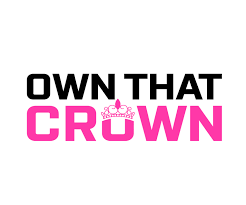 Subscribe to Our RSS Feed
Subscribe to Our RSS Feed
